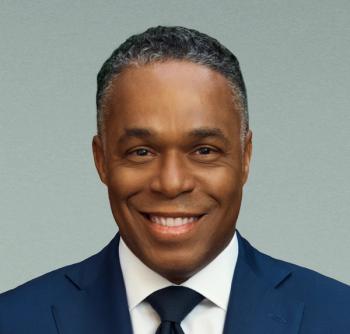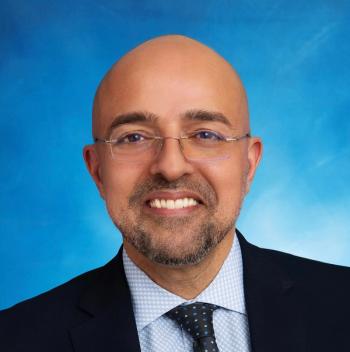
After Supreme Court win, hospitals press for 340B payments ‘without delay’
The high court ruled that Medicare improperly reduced reimbursements in the federal drug discount program. Hospitals are pushing the government to cough up the money.
Hospitals won a lengthy legal battle with the federal government over a federal drug pricing program, and now they’re hoping to get paid sooner than later.
Last month, the Supreme Court unanimously struck down Medicare cuts to hospitals and health systems participating in
The cuts went into effect in 2018 under former President Trump’s administration, and President Biden’s administration sought to continue the policy.
The case centered around $1.6 billion in annual Medicare payments. The American Hospital Association, which led the successful legal battle before the Supreme Court, has asked the government to pay that money as quickly as possible. The group sent a
Rick Pollack, president of the hospital association, wrote in the letter that the restoration of the funds would aid hospitals that have endured
“Given the vital role that 340B hospitals play in serving vulnerable communities, they should be repaid the funds that have been withheld from them without delay. They also should be paid for all of the years (2018-2022) in which the Centers for Medicare & Medicaid Services (CMS) illegally cut reimbursement rates,” Pollack wrote.
“We are concerned, however, that despite the Supreme Court’s conclusive decision, resolution of these issues could be bogged down in needless litigation, and that hospitals will not be appropriately compensated at a time when they are weathering significant financial challenges on many fronts.”
The hospital association said it is fears that CMS could revert to a position of budget neutrality after restoring payments, forcing health systems to repay back some funds.
If that happens, “some hospitals will be forced to pay back money spent years ago — including during the COVID-19 pandemic — because the federal government made a legal error,” Pollack wrote in the letter. “Hospitals should not have to pay for the agency’s mistakes.”
Hospitals and healthcare advocates cheered the Supreme Court decision. The AHA, Association of American Medical Colleges and America’s Essential Hospitals issued
“This decision is a decisive victory for vulnerable communities and the hospitals on which so many patients depend,” the three groups said. “340B discounts help hospitals devote more resources to services and programs for vulnerable communities and increase access to prescription drugs for low-income patients.”
- Related content:
Hospitals wrestle with Supreme Court ruling on abortion After Supreme Court upends Roe v. Wade, hospitals weigh impact on medical training
Pushing for ‘prompt repayment’
On the face of it, a 9-0 ruling from a Supreme Court with sharp ideological difference wouldn’t be expected, but the justices ruled unanimously.
Chad Golder, the AHA’s deputy general counsel, told Chief Healthcare Executive the case was clear.
“We felt from the beginning our position was the correct legal one,” Golder said in a phone interview. “We were thrilled at the results but not necessarily surprised.”
Golder said it’s difficult to project when hospitals could receive payments.
“Our view is it should be straightforward,” Golder said. “The Supreme Court said the cuts were illegal and the hospitals should be owed what was cut for them.”
“We are going to push as hard as we can to get prompt repayment,” Golder said.
While the justices ruled unanimously, the court did not abolish Medicare’s ability to reduce hospital payments in the 340B program. Essentially, the court found Medicare didn’t follow the proper process in reducing payments.
Under the law, Medicare must survey hospitals about the acquisition costs of drugs in the program. Since Medicare didn’t conduct such a survey before enacting the cuts in 2018, the justices said the agency couldn’t change its reimbursement rates.
Medicare did a survey of hospitals in 2020, but the hospital association contends that survey is flawed.
The survey was done early in 2020 during the emergence of the COVID-19 pandemic, “precisely when 340B hospitals were struggling to marshal critical resources to respond to the pandemic,” Pollack wrote in the letter. “Unsurprisingly, only 7% of hospitals that received the survey responded with the actual acquisition cost data.”
Medicare’s regulations state that surveys must have a large representative sample. Pollack also wrote that Medicare mistakenly said only 340B hospitals needed to respond to the survey.
‘Unscramble this egg’
The 340B drug discount program has plenty of critics. Some critics, including patient advocacy groups, have said health systems are profiting off the program and haven’t passed enough of the discounts to patients.
Some argue the program has grown far beyond its intended purpose of aiding the hospitals and health systems that treat a higher number of patients with lower incomes and patients from underserved communities. The program has grown from $9 billion in 2014 to $38 billion in 2020.
Ted Okon, executive director of the Community Oncology Alliance, talked about the Supreme Court ruling in an interview with AJMC.
“There's a lot of misinformation about this Supreme Court decision on Medicare reimbursement for 340B hospitals,” Okon said. “The fact of the matter is this was a very narrow rule by the Supreme Court.”
The justices referred the case back to a lower federal court. “It's in the lower courts hands as to how to unscramble this egg. I mean, it's just a real mess,” Okon said.
If Republicans regain control of the U.S. House of Representatives next year, which some political analysts say is very plausible, lawmakers are likely to take a closer look at the 340B program, he said.
Drug companies curb discounts
Hospitals in the 340B program have faced another challenge over the last year as pharmaceutical companies reduce their discounts in the program.
More than a dozen major pharmaceutical companies, including Johnson & Johnson, AstraZeneca, Merck, and Pfizer, have said they are restricting some discounts.
As drug companies roll back those discounts,
The federal government has taken legal actions against the pharmaceutical companies for rolling back the discounts, with mixed results. Hospitals are hoping those policies are reversed, Golder said.
Golder pointed to language in the Supreme Court opinion as recognition of the program’s importance. Toward the end of the opinion, Justice Brett Kavanaugh wrote, “340B hospitals perform valuable services for low-income and rural communities but have to rely on limited federal funding for support.”
“We think that is a strong sign that this is a program that serves its functions well,” Golder said.
Hospitals also see urgency in resolving the payments due to the financial headwinds they've been battling.
"The 340B hospitals are also hospitals that have faced unprecedented challenges from COVID and other financial and economic factors," Golder said.
The ruling in the 340B case came before the court’s landmark ruling that struck down abortion rights. As roughly half the states prepare to prohibit abortion,







































